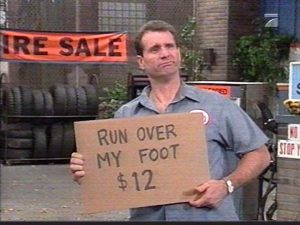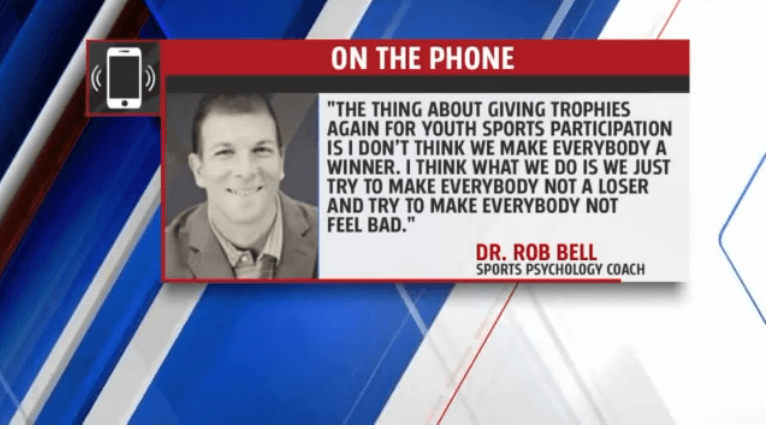sport psychology
-

(Video) Mental Toughness is built off of the field?
.
Mental Toughness is built off of the field? Not only does our best change as we get better, but Mental Toughness also becomes more about what takes place off…
-

Why I apologized to the guy who ran over my foot!
.
I was in Tennessee with a golfer at the PGA tour event. On wednesday afternoon, We were all standing around the chipping green while I was talking with my…
-

A participation trophy actually hurts more than it helps
.
A participation trophy does not build mental toughness FOX 59 interviewed me… click on the image above to watch the story… Kids are not to blame. We are. We’ve become…
-
5,000 push-ups & 5,000 sit-ups every day…
.
Herschel Walker was made fun at school and never went out to recess because he was afraid of getting beat up. His teacher used to put him in the…
-
Parenting is Contagious
.
When it comes to parenting, your example isn’t the main thing, it’s the only thing. As a professional speaker and author who studies and writes about what the best…
-
Sport Parents: The Ultimate Critic
.
As a parent of an athlete, there is really only one responsibility, support your son or daughter. Problem is many parents get the tonic of support mixed up with…
-

5 ways to dominate that FEAR!
.
5 Ways to Dominate that FEAR [Tweet “Fear takes us further than we want to go and keeps us longer than we want to stay.”] Fear takes us further…
-
The Negative YOU
.
I was told early on in life to use “I” statements. I was also instructed to use feeling words like frustrated, upset, and agitated. Yep, those seem accurate descriptors…
-
A Huge Myth About Trust…
.
There’s a Huge MYTH about Trust The best part about sports is that it is NOT like life. In athletics, A team or player won or lost, period….
